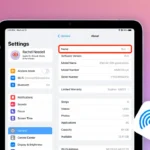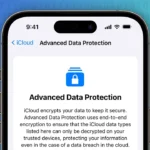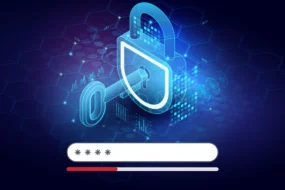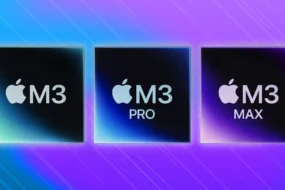In the realm of cybersecurity, agility is the name of the game. Managing digital certificates, especially in large-scale deployments, can often seem like navigating a complex maze. But what if we told you there is a way to make it as smooth as silk? Welcome to the future of IT security: automating your certificate management.
Certificate management is all about smartly leveraging technology to stay prepared and resilient in the face of evolving cyber threats. We are about to explore the nuts and bolts of this promising solution together. Basically, ensuring IT security via automated certificate management refers to efficiently securing digital certificates within an organization’s infrastructure.
Digital certificates play a crucial role in establishing secure communication and verifying the authenticity of entities in online environments.
Automated certificate management involves using software tools and platforms to streamline the processes of certificate issuance, renewal, and revocation. It helps organizations manage many certificates across various systems and devices effectively, reducing manual efforts and minimizing the risk of certificate-related security incidents.
The Challenges of Manual Certificate Management

Manual SSL certificate management is an intricate, time-consuming process with potential pitfalls. Tracking certificate validity periods across large deployments, ensuring timely renewals to prevent outages, revocations, or juggling multiple Certificate Authorities (CAs) — it’s all in a day’s work.
Plus, the risk of human error remains constant. An erroneous entry here, a forgotten renewal there, and you’ve got a cybersecurity hiccup. Given the rapidly evolving digital landscape, this certificate management system appears more like a high-wire balancing act. Automation is the safety net enterprises need.
The Need for Certificate Management and How It Helps

As discussed in the previous section, managing certificates manually can be challenging for numerous reasons. While SSL establishes a secure connection ensuring information safety and preventing breaches, its management can be time-consuming and prone to errors. On the other hand, automated SSL certificate management systems can help make this easier.
These tools simplify the issuance, installation, renewal, and monitoring of SSL certificates. This helps developers reduce administrative overhead and pay attention to other tasks that require human attention.
By automating the SSL management process, organizations can ensure the timely renewal of certificates, prevent service disruptions, and ensure that the security layers are strong and reliable.
The Power of Automation in Certificate Management

The age of automation is a turning point in the world of certificate management as it brings efficiency and precision to the process, reducing the scope for human error and freeing up valuable time and resources. Consider it a trusted ally, diligently handling issuing, renewing, and revoking certificates, even in large-scale deployments. It’s akin to having an autopilot mode for your certificate management system—no more missing renewals or struggling with manual entries.
Moreover, an automated certificate management system like Sectigo’s is designed to scale effortlessly with your organization’s growth, accommodating increasing SSL certificates without compromising efficiency or security. This scalability future-proofs your IT infrastructure and makes certificate management less complicated.
Tips to Remember While Implementing an Automated Certificate Management System

The results and ROI of an automated certificate management system largely depend on how it has been implemented. For best results, it’s important to ensure an air-tight implementation. Here are a few pointers to check while setting up a certificate management system:
- Identify your requirements
- Choose a reliable certificate management system
- Integrate with existing systems
- Establish proper certificate workflows
- Setup monitoring and alerts
- Implement certificate lifecycle management
- Train and educate colleagues/staff
- Regularly audit, review, and optimize
- Maintain backups
- Be in sync with industry updates
Trends Shaping the Future of Certificate Management

With every leap in technology, cybersecurity must leap further. The shift towards an automated certificate management system is a significant step in this journey. As digital ecosystems continue to expand and the volume of SSL certificates rises, reliance on manual processes will likely become a thing of the past.
Certificate management systems are set to evolve, embracing new trends such as machine learning and AI, potentially offering predictive insights and proactive management. Another key trend could be integrating certificate management into broader IT security systems, leading to a more holistic approach to cybersecurity.
Think of the future as interconnected, intelligent solutions that respond to threats and anticipate them. There is a fascinating journey ahead, and automation lies at its core.
The Imperative of Automated Certificate Management

Ultimately, it all boils down to one fact: Automating your certificate management is more than just a strategic move — it’s an essential step for the future of IT security. It offers efficiency, enhances safety, reduces errors, and prepares organizations for future advancements.
Digital certificates have a finite lifespan and must be renewed or replaced periodically. Managing this process manually can be time-consuming and prone to errors. Hence, automated certificate management streamlines the entire certificate lifecycle, from issuance to renewal and revocation, ensuring timely management and reducing the risk of expired or compromised certificates.
Maintaining a comprehensive view of the certificate landscape becomes challenging with the proliferation of certificates across multiple systems and devices. Automated certificate management provides a centralized platform for monitoring and controlling certificates, enabling IT teams to have better visibility, track certificate usage, and enforce security policies consistently.
A comprehensive security certificate management system, like the one offered by Sectigo, acts as a crucial cog in the wheel of your cybersecurity framework. Consider integrating or enhancing your PKI management as we move forward in this digital era. Remember, a secure today paves the way for a safer tomorrow.
Conclusion
At last, we would say that automated certificate management is a very important tool that helps in mastering IT security. By streamlining the lifecycle of a certificate, the companies can ensure secure communications and give protection against cyber attacks and also reduces downtime.
In case you missed it!









